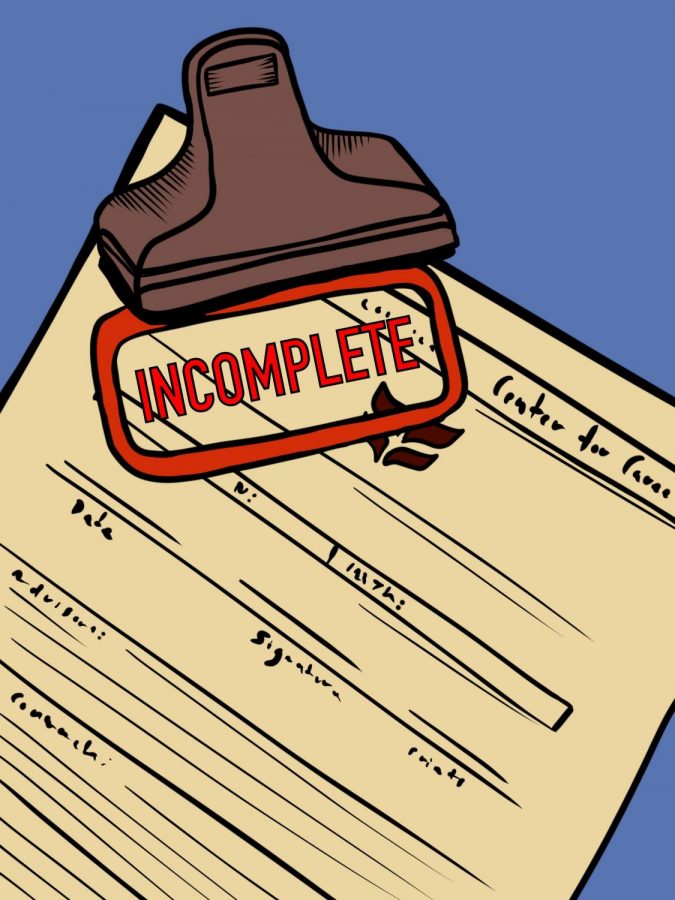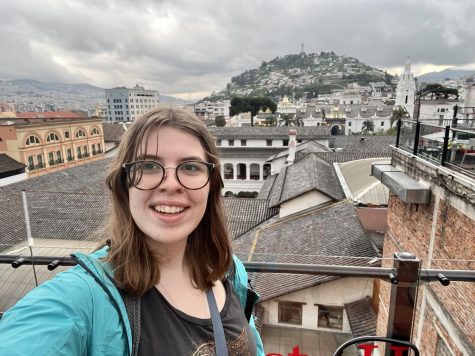Registrar issues firmer guidance on Incompletes
February 20, 2023
The Committee on Academic Standing (CAS) issued firmer guidance on Grinnell College’s incomplete course work policies last semester, resulting in an earlier final deadline for Incomplete requests. By requesting an Incomplete, students with extenuating circumstances can take two weeks after the end of finals to turn in course work. The College is now reaffirming their stance on the appropriate circumstances for when Incompletes can be granted, a change from pandemic-era policy.
Between 2012 and 2020, the total number of Incompletes issued to students ranged between 30 and 70 each semester, according to minutes from the Dec. 1 faculty meeting. In the spring 2020 semester, after students were instructed to leave campus and attend courses remotely due to the COVID-19 pandemic, Incompletes jumped to 176 per semester and maintained a similar rate until fall 2022.
Starting in spring 2020, the CAS changed the final deadline to request an Incomplete multiple times. Initially the deadline was extended to the Monday before finals, and was extended farther to through the end of finals week in fall 2021. The current policy allows students to request an Incomplete by 5 p.m. on Reading Day, the Monday before finals begin.
In making the change, Joyce Stern `91, the dean for student success and academic advising, said that the committee sought to adjust from pandemic-era measures while still acknowledging that the pre-pandemic deadline may have been too fast.
“Those two years were actually exceptions to the rule of the deadline [being] on Friday at the end of classes. That part of the policy has been in place [since] I started in 2000,” Stern said.
The new deadline will allow for a greater degree of leniency than before the pandemic, according to Stern.
“The new deadline gives students an extra three days to kind of assess what their finals are looking like and be able to ask for extra time,” she said.
Stern said that the new guidelines in part stem from a push to get faculty, students and staff to understand the original intent for Incompletes.
“Students were taking an awful lot of work home with them. I kind of understand why it was happening,” Stern said. “But, that’s not really a great way to learn.”
The new guidance addresses when Incompletes are generally appropriate for students. According to the guidance, Incompletes are allowed when unforeseen circumstances have emerged, only a single assessment remains in which the students can complete coursework within two weeks and the student has been regularly participating in class until that point.
An Incomplete is not appropriate when course policies do not permit late work, multiple assessments must be completed, the assignment cannot be completed independently or an extension has already been granted on the same assignment that the student has not met.
While granting Incompletes is under the discretion of the instructor, Stern said that academic advising typically becomes involved in the Incomplete process for students taking multiple Incompletes in one term or for students enrolled in 14 or less credits.
“I’d love to prevent them in all cases,” Stern said. “We’re always trying to help students pursue their semester in a way that’s sustainable, so they don’t have to take work home with them.”
Alex Sun `23 said that he took an Incomplete in a history seminar last fall because he wanted to prioritize graduate school applications, which were due at around the same time as the history seminar’s final.
While this reason for an Incomplete is not listed under the appropriate reasons for Incomplete included in the new guidance from CAS, Sun said he thinks access to Incompletes in general is very valuable.
“I know more people are seeking out jobs and internships during the school year than before, so there are just a lot of factors to consider,” Sun said.
While the CAS issues guidance and directs policy, individual faculty have full discretion in granting Incompletes to students, Stern said.
Clark Lindgren, professor of neuroscience and 2022-23 chair of the faculty, did not respond to a request for comment about faculty perspectives on the new guidance.




















































